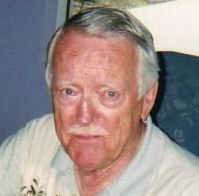
Publisher:
Bonnie King
CONTACT:
Newsroom@Salem-news.com
Advertising:
Adsales@Salem-news.com

~Truth~
~Justice~
~Peace~
TJP
Apr-20-2012 16:12

 TweetFollow @OregonNews
TweetFollow @OregonNews
An American Tragicomedy: Brain Capital
Bill Annett Salem-News.comMost men observe the white egret, as it stalks languidly
through the blue waters of a lagoon, and ask: “Why?”
I look at it and say: “Why not?”
And that has made all the difference.
 Life can end very differently from the way it begins. |
(SASKATCHEWAN) - In 1945, Barney Bain was discharged from the U.S. Army Air Corps, at 23 one of the youngest Light-Colonels in history, with 50 missions over the Continent in B-17 heavies, a brace of English girl friends and a DFC. He also had a soupcon of post-traumatic stress disorder, which hadn't yet been discovered by Army medics or anybody else. But he had a compelling notion to make something of himself.
Figuratively creating a garage industry, because he had only a carport attached to the house in Levittown, Pennsylvania, which he had bought on the G.I. Bill with zero down and a $5,000 mortgage, Barnie tinkered with an idea he'd picked up from one of his British liaisons: to produce a carbonated beverage, laced with a touch of fruit flavor and a tangy aftertaste. He called it One-Up.
By the 1950s, having invested his substantial back pay, allowances and mustering-out gratuities, Barney had leased a small bottling plant and hired two former aircrew buddies to market his product to the wholesale trade. He had barely completed a few minor shipments when President Eisenhower suffered a heart attack and the world's financial markets tanked. While even Coke and Pepsi faltered, One-Up died in its infancy.
Barney resiliently got a job flipping hamburgers, worked at night improving his product, including a uniquely shaped barrel-bottle, and borrowed heavily from friends and relatives. Into the confident go-go market of the Sixties, he launched his manufacturing marvel, with the New-Look brand name of Two-Up. Unfortunately, Dr. Pepper chose that moment to bury Barney's roll-out with a huge advertising and marketing campaign.
Barney went back to the drawing board, managed to fund his personal bankruptcy by holding down a night job, and persevered in his resolve. In his virtual if not physical garage, he came up with another wrinkle: coupling his bottle tops with magazine subscriptions. By 1973, he had also succeeded in attracting additional capital from a rich uncle, and made his third assault on the soft drink industry. His Three-Up sensation actually won a write-up in the Cleveland Plain Dealer, just before the Oil Crisis traumatized world markets and froze everybody's IPO plans for the key year or so in which he had chosen to launch.
With Four-Up, going in to the Eighties, Barney took an entirely different tack. Realizing he had not aimed high enough, he enlisted the help of a former bombardier in his aircrew, now profitably established as a deposit broker in the burgeoning field of Savings and Loan, which had been enthusiastically endorsed by President Reagan himself.
The bombardier-broker set him up with a flourishing S & L out of Las Vegas, with a reciprocal deal designed to flood him with investment capital. The proviso was that he name to his board the S &L president's brother -in-law, a casino pit boss and the youngest son of a cousin of the Vice-President of the United States.
The collapse of the S & L bubble circa 1989 barely predated the roll-out of Barney's rented assembly line on the east side of Pittsburgh.
By now a keen student of macroeconomics, Barney, who had also learned not to waste his time with part-time jobs, had become popular on the lecture circuit, primarily on the twin subjects of day-trading and financial de-regulation, both of which reached a sort of crescendo by the mid-Nineties.
The fact that financial deregulation had flourished despite the crash of the S & L industry was seen by Barney as a phenomenon that convinced him, through the help of an earnest broker, to have Five-Up stock listed on the Spokane Stock Exchange - just before 60% of all day traders, including Barney, through massive miscalculations, declared bankruptcy, an exercise that for Barney had become almost routine.
Within less than a decade, new hope was born of the Millenium Glitch's failure to materialize as everyone had anticipated. Barney, with renewed confidence, managed to be interviewed on CNBC by Maria Bartiromo. In an exclusive exchange, the famous television interlocutor deftly questioned him as to "the catalyst that he would grow to offset the discernible headwinds." His forthright answers, including his cliche-ridden explanation of "his corporate mission through a top-line matrix compared with bottom-line paradigms," attracted the attention of Louis Blankfein, CEO of Goldman Sachs, which investment bank immediately tailor-made a new investment product: the Bottler-Based Security. (BBS.)
Briefly, this consisted of bundling perhaps a thousand individual mortgage properties within Barney's purely imaginary but highly-motivated franchise empire. This BBS was then carved into bite-sized debentures, and sold with alacrity by a banking group headed by Goldman Sachs both to financial institutions and the retail public. But mostly financial institutions, who know best about these things. Besides, the three major rating agencies had declared BBS securities to be Triple-A.
Goldman Sachs retained an honest arm's length relationship with Barney's company, and in fact, once the issue had been distributed – or perhaps slightly before that - engaged a nimble hedge fund manager to create an agenda to sell the issue short, utilizing Credit Default Swaps, a fool-proof financial instrument to make as many millions on the downside as the BBS had made on the upside – for Goldman Sachs, in both instances, of course.
Barney and Six-Up were judged by the Secretary of the Treasury and the Federal Reserve Chairman to be NOT too big to fail – unlike Goldman Sachs, which was promptly bailed out, granted, on a much smaller scale than was the case with the simultaneous Bush-Paulson-Obama Stimulus Plan.
Just before Barney filed for Chapter 11, he was approached by a highly successful venture capital company known as Brain Capital, headed up by a prominent Republican noted for job-creation, with a last-ditch solution. There remained, of course, a certain residual value in Six-Up's property, plant and equipment, which Brain Capital converted, after they had executed a merger and acquisition, the reverse buy-out leaving Brain Capital with whatever capital was left, and Barney holding the bag containing the Class A, non-voting, (and worthless) stock.
Barney, having long since sold his Levittown house for $500,000 or so (prior to the real-estate bubble, fortunately), moved to a single-wide trailer on the east side of the Florida metropolis of Apopka. He decided, after considerable thought, to give up his financial career, to raise pet geckos for the insurance industry and be a beach comber. He subsequently secured a part-time job as a motivational piano player in a Tampa bordello.
During a conversation with a neighbor in the course of his final garage sale (held in his carport), he gave away his one remaining financial asset, which might be referred to as an intellectual asset – The Six-Up Franchise.

Bill Annett grew up a writing brat; his father, Ross Annett, at a time when Scott Fitzgerald and P.G. Wodehouse were regular contributors, wrote the longest series of short stories in the Saturday Evening Post's history, with the sole exception of the unsinkable Tugboat Annie.
At 18, Bill's first short story was included in the anthology “Canadian Short Stories.” Alarmed, his father enrolled Bill in law school in Manitoba to ensure his going straight. For a time, it worked, although Bill did an arabesque into an English major, followed, logically, by corporation finance, investment banking and business administration at NYU and the Wharton School. He added G.I. education in the Army's CID at Fort Dix, New Jersey during the Korean altercation.
He also contributed to The American Banker and Venture in New York, INC. in Boston, the International Mining Journal in London, Hong Kong Business, Financial Times and Financial Post in Toronto.
Bill has written six books, including a page-turner on mutual funds, a send-up on the securities industry, three corporate histories and a novel, the latter no doubt inspired by his current occupation in Daytona Beach as a law-abiding beach comber.
You can write to Bill Annett at this address: bilko23@gmail.com
 |
 |
 |
 |
 |
Articles for April 19, 2012 | Articles for April 20, 2012 | Articles for April 21, 2012
Salem-News.com:


googlec507860f6901db00.html
Quick Links
DINING
Willamette UniversityGoudy Commons Cafe
Dine on the Queen
Willamette Queen Sternwheeler
MUST SEE SALEM
Oregon Capitol ToursCapitol History Gateway
Willamette River Ride
Willamette Queen Sternwheeler
Historic Home Tours:
Deepwood Museum
The Bush House
Gaiety Hollow Garden
AUCTIONS - APPRAISALS
Auction Masters & AppraisalsCONSTRUCTION SERVICES
Roofing and ContractingSheridan, Ore.
ONLINE SHOPPING
Special Occasion DressesAdvertise with Salem-News
Contact:AdSales@Salem-News.com

Terms of Service | Privacy Policy
All comments and messages are approved by people and self promotional links or unacceptable comments are denied.
[Return to Top]
©2026 Salem-News.com. All opinions expressed in this article are those of the author and do not necessarily reflect those of Salem-News.com.